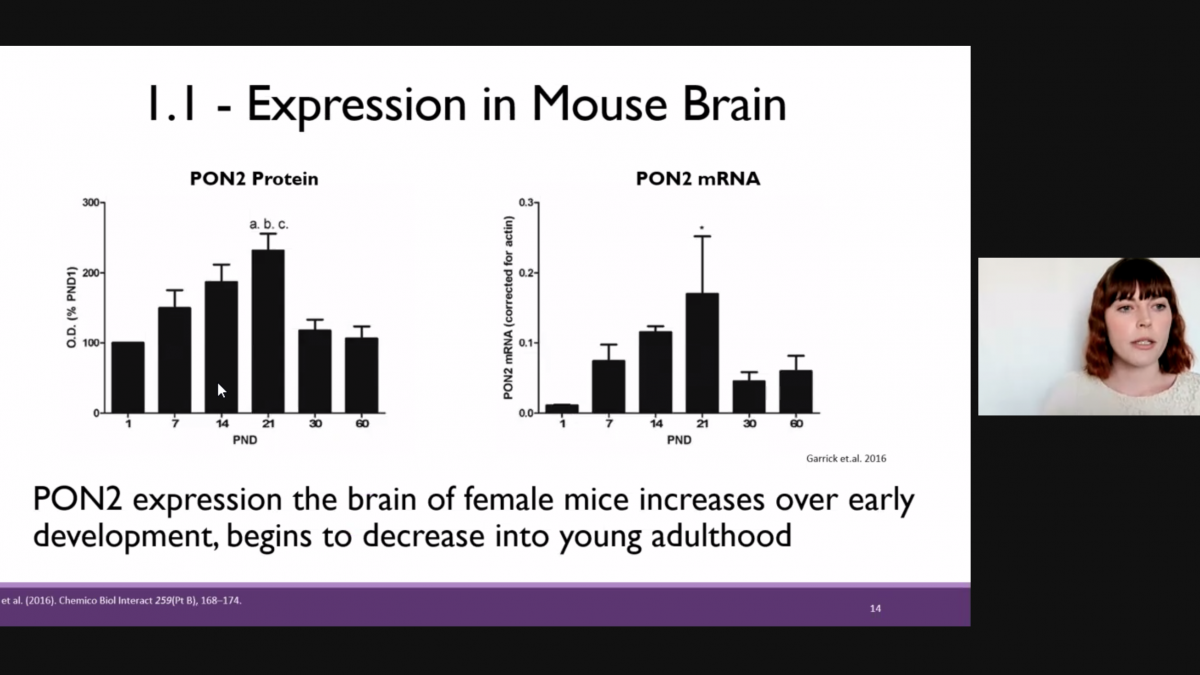
Dr. Jacquline Garrick is a trainee on Project 3.
Dr. Jacqueline Garrick says the most important thing about her dissertation research is the fact that it opened so many doors for future research. Dr. Garrick studies Paraoxonase 2 (PON2), an antioxidative enzyme that's found all over the body in many different tissue types and is in particularly high concentrations in the heart and lungs.
Up until recently, PON2 was understood to be found in the mitochondria and to play a role in protecting cells from oxidative stress.
Very little is known about PON2 in other organs such as the brain. When Garrick started her dissertation research, her advisor, Dr. Lucio Costa, was running one of the only labs in the world that had published on PON2 in the brain.
By using a mouse model that produced only very low levels of PON2 (called a PON2 deficient mouse), Garrick found that PON2 was involved in many more pathways and processes than she had expected. Most notably, she found PON2 may be involved in mRNA processing and transcriptional processes.
"Working with PON2 continuously surprised me. I developed a love/ hate relationship with it. Everything I thought it would do it did the opposite. If I thought it would do something it wouldn't."
The surprises only opened more avenues for research. Garrick plans to pursue some of those avenues herself as she continues as a post-doctoral trainee co-advised by Drs. Costa and Judit Marsillach, a former UW SRP trainee who is now an assistant professor in the UW Department of Environmental and Occupational Health Sciences.
For the first time she will be examining behavioral endpoints in a full PON2 knockout model and evaluate how the loss of PON2 modulates in-utero and early life toxicant exposure. She is also working on a separate project looking at the effects of prenatal diesel exhaust exposure in mice, evaluating behavioral markers of autism as well as neurodegeneration in older animals.

